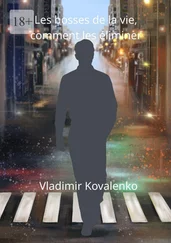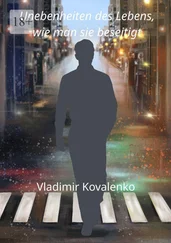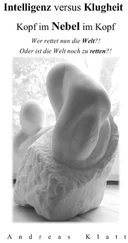The car we got into was empty, cold, and poorly lit. There were no compartments so we could be together as at home, just benches on either side beneath baggage racks that looked like bird feeders … and it smelled vaguely of the toilet. It resembled an empty, unheated room. Little white porcelain markers were attached to the windows and doors. The black, arched letters on them resembled drawings of hummingbirds, frogs, and crabs. Except for the vowels, I couldn’t make out a single letter or a complete word in a language I knew. Mother tried to read them — father, too — but with no success. I went to the far end of the car, which was in semi-darkness, so I could take its full measure from door to door, but mother, who had been soaked through by the rain, shouted at me so loudly to come back immediately that I hurried to take my seat next to Vati, because if she shouted again something in the car was bound to explode. Outside the windows there was nothing but blackest rain … Without any ado, blowing of whistles or shouting of railway men, and without my noticing it, the train had begun to move … Through the rain and the dark, its black windowpanes covered with millions of raindrops … It pushed into the tracks with its wheels, as though it were kneeling, then its shock absorbers collided with something, and then it was pushing into the tracks again … The car leaned out to one side and repeated this motion several times and each time it did, I didn’t know if I could move up or down its steep incline without the car breaking in half or my weight causing an accident … A narrow caged door kept opening and closing by itself … nothing was visible through it, except for darkness and some toilet paper on the floor, crumpled and filthy, a whole roll of it, a regular paper garland, like in the boys’ bathroom at school. The floor didn’t have rows of tiny gutters like the car on the train from Basel, it consisted of ordinary wooden floorboards. This fact bothered me, as though they’d removed something essential for the operation of the train … In the windows I could see dim reflections of the benches, the poles and the shapeless white mass of my own figure … I went straight toward myself and pressed my face to the window … to see what I was like since I’d been traveling … I couldn’t see, but I could sense that it was still pretty much me … though blurred, so that I could have taken the image for some counterfeit or substitute for myself … For a tenth of a second I felt uncertain and would have liked to send my ghost to check where I was … inside the train or stuck somewhere out there, flitting through an unknown land … I turned away perplexed, because I couldn’t make out if something had happened to me or if I really was someone else … Did this strange train car have any connection at all with the locomotive, the tracks, the railway, the ventilators on the roof … I knew trains well, every Christmas I got a new one, which I would immediately disassemble down to its motor … It was moving, all right … lost in the darkness, but neither over the earth nor through the sky … so where, then?… it had to be racing toward the place where there were lots of animals in the barns … horses, cows, colts, calves … red boats and little biplanes for doing aerial stunts … I looked at my legs jutting out of my shorts. Sometimes I was amazed I was still so little and hadn’t grown up yet … and sometimes I got angry that parts of me were growing so fast and gawkily, and that I wasn’t a child anymore … Fortunately my family was sitting at the other end of the car … mother in her white hat, which she’d put on over a kerchief, Gisela covered with her little overcoat, Vati with his long graying hair and dandruff on the collar of his blue suit … they were sitting there as if in one of our rooms at home … and for an instant I sensed that this image would stay with me forever … It occurred to me to go check the time on Vati’s watch. It was ten. We had left Basel at one. “Wie komisch das ist … vor neun Stunden waren wir noch in Basel,” hI said. Father’s lips stretched out in a smile. Mother was turned away, scratching a corner of her mouth with her index finger. Oh, these two were never going to get along if they couldn’t come together on such a nice trip … I had never seen Vati at rest before … in a train, outdoors, on a streetcar … except for once in the sanatorium when he took me there and then came back and fetched me, in the zoo, and on rue de la Couronne … He sat holding his hands between his knees because it was cold, his eyes blinking behind his glasses. Then he got up and went to the bench behind me. He took off his shoes, wiped his feet with the newspaper and then stretched his legs out on the bench. “Dort ist es schmutzig,” imother said. Vati lay his head on the arm rest. He had made a pillow for himself out of the Basler Nachrichten , put his glasses into their case and covered himself with his coat, so that he now vanished. Nobody was inclined to say anything unusual or amusing. I climbed up on my knees and stretched out on the bench the length of the backrest, on the other side of which he lay. Mother covered me with a coat and tucked a scarf under my head. I could just feel the warmth of my body or of the coat where it covered my face without warming the cold air above me. Although the whole car was ours, with only our luggage on the racks up above, the train chugging and racing, I was spellbound by the blue, dreamlike lights above me … and wished I could be, if only for the short time it took me to fall asleep, back in my bed in Basel, under that fluffy comforter of mine … Mother was dozing in the corner with a scarf on her head and her hat pushed down over her eyes, and Gisela lay in the hollow of her lap, while Vati had begun snoring, invisible on the other side of the bench.
*
Eat, or else you’ll get sick.
†
After thirty years living in Switzerland they’ve thrown us out.
‡
It’s the war.
§
If it weren’t for the threat of war, you would never have been expelled from Switzerland.
‖
If only we’d taken Swiss citizenship back then, in the twenties. But my husband wanted to get his land back … How far are you traveling with us?
a
To the border.
b
Hurry, hurry! Get washed, we’re going to Yugoslavia.
c
No, I won’t permit it.
d
Bad, tepid coffee.
e
Why aren’t they traveling with us?
f
Clairi will come later, but Gritli is staying and will do everything she can with the authorities so we can come back.
g
That’s the right train!
h
How funny, nine hours ago we were still in Basel.
i
It’s dirty over there.
WHEN I OPENED MY EYES, all three of them — Vati, Gisela and mother — were sitting across from me. Judging from the thick tobacco smoke that filled my head and my lungs, I could tell that something must have happened in the meantime, and I could hear various languages and murmuring voices intermingling around my head. The train car was full. Thick with people … but I had to shake off the sleep and the smoke in order to see them. “Sind wir schon über die Grenze?” *I asked randomly, because I didn’t know … “Ja, jetzt sind wir schon in Jugoslawien,” †Vati said, smiling. I was crestfallen. There had been no flash, no thunder when the locomotive penetrated the border, there was no sign that anything had been split or changed outside … all around in the blue darkness there was a huge number of people just sitting … I pressed my eyes shut to see if somewhere in the darkness of my body, my chest, my head, I could find a bright line of lightning, some afterglow of the border, an echo of thunder … Because although I’d been sleeping, my body must have perceived the transition from darkness to light … and in my darkness there must be some trace at least, some dim glow, some smoldering bulb … There was nothing … it was mute, black, weightless, thick. I was just terribly sleepy. People were sitting in the shadows … on all the benches, dressed almost for autumn, although it was June. They had scarves and hats on their heads … Their heads, their heads. What were they like? Blurry. They were holding baskets, bags woven from straw, brightly colored, a man in a black suit and white shirt sitting on the bench across the aisle from me had the ugly remains of an old backpack slung over his shoulder. On the luggage racks there were baskets covered with napkins like pillows. I wanted to inspect them from head to toe, but that wasn’t possible on account of the weak, dim light … Who were they? They were sitting, from right next to me all the way to the door at the far end … there wasn’t even the tiniest free space remaining in the whole train car … They just went on forever at the back, as if in the rain. But some of them were seated facing toward our bench and seemed to be alert. What were they like? They had darkish, old faces, like leather soccer balls … and big, black cavities of various depths where their eyes were. I couldn’t make out their speech. They stared at mother, who in contrast was as white as snow, and at Gisela, even at me, and especially Vati … But he was one of them and could have blended in … They stared at us, languidly, from head to toe, causing me to feel a flush of warmth that cooled as soon as it reached my face. Vati turned to a man who was dressed in an ordinary jacket, although on his head he was wearing a uniform cap with a cockade. He said something, his mouth moving so slowly that his jaw muscles tightened, turning his face into a mask … he said something in a strange, soft language, as though he had some new, unusual mashed food in his mouth. They looked him in the face, in the eyeglasses, the mouth, his hair … “Was hast du gesagt?” ‡mother said. Our language was sharper and firm, but understandable. Now everyone turned to look at mother, even the ones sitting in the back … Still holding his hands between his knees from the cold, father turned toward where the other man was sitting … and again he said something in that extraordinarily pliable language in which I could barely make out even the more distinct consonants. The man in the cap didn’t answer, even though he was the one facing him. Instead, the voice of someone in the packed car who was sitting in shadow by the window across from us answered. I couldn’t distinguish him from the other dark-clad figures around him … He answered quickly, as though issuing some call, but again in the same strangely drawling language where I couldn’t distinguish friendliness from hostility, nor could I detect any melody, if it had one. The same man, now with his head stretched out, continued to speak, while the others kept stealing glances at Vati from over the backrests. The man with the backpack said something like thunder. Using a black, bushy umbrella that had a knotty handle resembling a roasted lizard on it, he drew something on the floor with its tip. Vati pointed at the drawing, invisible on the dark floor, which was now caked in mud and covered with sand that had been tracked in … and bent over the floor, he said something in their language that sounded very childish. Suddenly everyone started talking at once, a veritable barrage of yarn and wool … and somebody got up from the seat by the window behind me, revealing the unbuttoned panels of their vests and white expanses of the shirts underneath … “Worüber sprecht ihr?” §mother asked, and all eyes fastened on her, including mine. “Wo wir billing essen und schlafen können,” ‖Vati answered from the door of the car, where he now stood, looking rumpled and very pale.
Читать дальше












